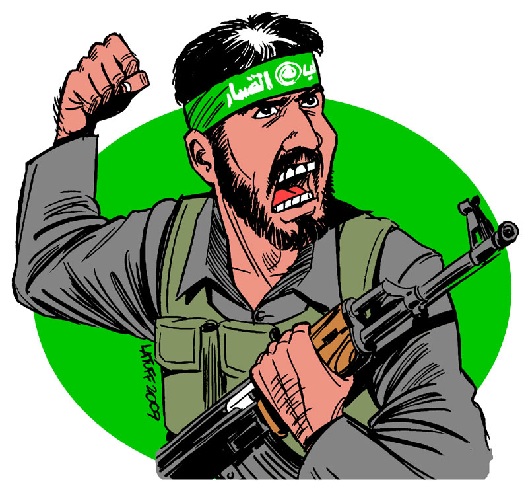The attack does not appear to have been culturally motivated, therefore not linked to terrorism. — Peter MacKay
Justice Minister Peter MacKay has finally let the cat out of the bag. If you shoot up a crowd, and you’re white, you’re a “murderous misfit.” If you do it with a “cultural motive,” though, then you’re a terrorist. The beliefs and motives of white people aren’t “cultural” — they’re the natural order of things. Only the Other (see illustration, above) has a “culture”: we white folks are blessed with “neutral ethnicity.”
Perhaps it’s time for an anthropological SWAT team to go in and sort these folks out. I mean that metaphorically, of course.
Consider Stephen Harper’s recent use of the pronoun “we,” when referring to wearing the niqab while taking the oath of citizenship. “That’s not how we do things here,” he says, and he goes on to opine: “I believe, and I think most Canadians believe that it is…offensive that someone would hide their identity at the very moment where they are committing to join the Canadian family.”
Where does one begin? Some Canadian citizens already wear niqab — a diminishing number, I suspect, but they’re a part of the “Canadian family.” The real hilarity, however, lies in Harper’s comment about hiding one’s identity. To a niqabi, of course, this attire is an expression of identity. Removing it, in fact, would be to hide her identity, as a small handful of women in France and Belgium know: they are legally not permitted to set foot outside their homes unless they venture forth in secular disguise.
Even if one is to be charitable, and interpret Harper’s notion of “identity” as merely a bureaucratic one — that is, the person taking the oath needs to be provably the same person as the one who applied for citizenship in the first place — it is difficult to understand his objection. Nothing prevents the citizenship court from requiring that suitable ID be produced and confirmed. Nor (and I can state this from experience, having has a niqabi in a class I once taught) is there any impediment to court officials determining if the oath is actually being spoken, a normal requirement of the ceremony.
And now, Halifax. Chris Selley of the National Post thinks “cultural” is good shorthand for the definition of terrorism in the Criminal Code. He is referring to Section 83.01.1, wherein “terrorist activity” is defined as being motivated, in whole or in part, for “a political, religious or ideological purpose, objective or cause.”
He’s dead wrong. It isn’t shorthand at all. It’s a dogwhistle.
Whoever those “murderous misfits” in the Halifax area turn out to be, they had their own motives and beliefs, which were obviously “cultural” in the general sense of the term. But MacKay is implicitly including them as part of the “Us” side, not the “Them” side.
The Criminal Code definition of “terrorism,” as we are becoming increasingly aware, can mean just about anything that those in authority want it to mean. The “murderous misfits” in Halifax clearly wanted to make some sort of statement. It really doesn’t matter whether or not some explicit doctrine lay behind it: the personal is also political. The Halifax police and the Justice Minister have decided, however, that they are not “terrorists” — even though their planned activity would certainly have terrorized.
These are dangerous waters. Invented categories like “terrorism” inevitably take on a kind of objective existence. It’s important, one might think, to be clear on who is excluded and who is included in that semantic dragnet, but its arbitrary use has already made that virtually impossible. “Terrorism” is a construct that attaches to some violence but not to other, similar violence. Its deployment is entirely political.
As students of Michel Foucault would understand, a proliferating taxonomy of “terrorism” is already in evidence: its forms and sub-forms are rapidly appearing in the literature. The signifier isn’t merely floating, but soaring. Today it will land on “culturally” motivated violence — that is, violence by the Other. Tomorrow, almost inevitably, it will adhere to the actions of additional perceived enemies — environmentalists, unionists, aboriginal rights activists, and so on. Their activities can already be accommodated within the generously wide definition of “terrorism” in the Criminal Code, and now they can be more easily suppressed by Canada’s new secret police.
The bottom line is this: using their current powers and techniques, the Halifax police apparently nipped a planned mass murder in the bud. Our Justice Minister, however, used his press conference on that subject to plug Bill C-51, which will provide new law-breaking powers to the Canadian Security Intelligence Service, while making the advocacy of “terrorism in general,” whatever that means, a crime. (A devastating analysis of the Bill, by Craig Forcese and Kent Roach, may be found here.) At the same time, as noted, he and the Halifax police are loath to describe the actual suspects, who were planning a violent attack on the public, as terrorists.
I am not arguing that they should be so labelled. Just the opposite, in fact: I oppose that label in the first place. The arbitrary and frankly racist manner in which it is currently being applied should surely be a sufficient demonstration of its dangers. But we continue to stumble and slide down this increasingly slippery slope, as though in a dream.




